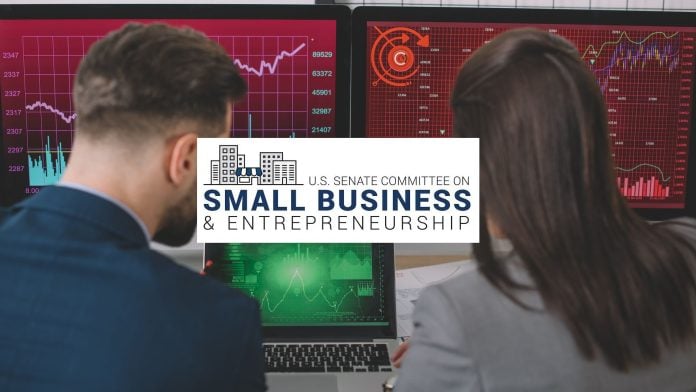A recently released report from U.S. Senate Committee on Small Business and Entrepreneurship Chair Joni Ernst (R-Iowa) unveils alarming vulnerabilities in critical technology programs that could jeopardize billions of dollars in American intellectual property. The report calls for urgent reforms in the Small Business Innovation Research (SBIR) and Small Business Technology Transfer (STTR) programs to prevent potential exploitation by foreign adversaries, particularly China. As small business owners increasingly rely on these programs for funding and growth, the implications for the business landscape are significant.
Senator Ernst asserts that the findings of the report underscore a critical national security concern. “This alarming report must serve as a wake-up call to Washington,” she stated. “The SBIR-STTR programs provide a valuable pipeline of technology that we cannot allow China and other foreign adversaries to steal.” This statement reflects the urgency for small businesses to navigate a landscape where funding can potentially lead to unintended consequences.
The report outlines specific issues, including a staggering number of flagged applications. In the years 2023 and 2024, 835 applications for SBIR-STTR funding raised concerns due to foreign ties, yet only 303 were denied. This inconsistency across federal agencies raises several questions about the protection mechanisms currently in place. For instance, the National Institutes of Health (NIH) denied all of the 144 flagged applications, while NASA only rejected one out of 125, illustrating a glaring disparity in due diligence standards.
Another aspect of the report highlights the involvement of "SBIR mills," a term used to describe a select group of companies that dominate funding. Notably, six out of the top 25 recipients had evident links to China and collectively secured nearly $180 million from the Pentagon in the same funding cycle, further complicating the narrative around safeguards in place.
The aforementioned INNOVATE Act, championed by Ernst, aims to address these vulnerabilities head-on. It seeks to strengthen oversight and establish consistent due diligence measures across federal agencies. As Ernst explains, “My INNOVATE Act creates strong and enforceable due diligence requirements across government to ensure that tax dollars are used to unleash the Golden Age in America and not subsidize research in Beijing.”
For small business owners, the implications of these findings can’t be overstated. The SBIR and STTR programs are essential for funding innovative projects, but the potential for foreign influence raises concerns about safeguarding proprietary technology and ideas. The reforms proposed in the INNOVATE Act could benefit small business owners by enhancing the integrity of these programs, thus ensuring that funds are directed toward robust American innovation.
However, as with any regulatory changes, small business owners should also be aware of possible challenges. Increased scrutiny could result in longer application processes and more rigorous compliance requirements. Businesses may need to invest additional time and resources into demonstrating their adherence to the new standards, which could impact operational efficiency.
Nevertheless, the upside is substantial. With tighter controls and a more secure funding environment, small businesses could find that their intellectual property is better protected, allowing them to innovate without fear. Ernst’s proposal emphasizes the need for a comprehensive approach to shielding American technological advancements, ensuring that tax dollars reinforce rather than undermine national security.
As policymakers debate the future of these critical programs, small business owners are encouraged to stay informed about the developments surrounding the INNOVATE Act and the ongoing discussions in Congress. The potential benefits of improved safeguards not only affect individual businesses but also contribute to a more resilient economy that prioritizes innovation without vulnerability to external threats.
For more detailed insights, you can read the full report here as well as examine the specifics of the INNOVATE Act here.
Image Via Envato: LightFieldStudios



